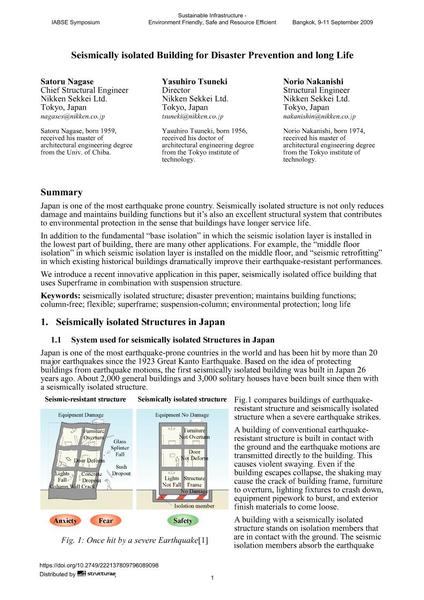Seismically isolated Building for Disaster Prevention and long Life

|
|
|||||||||||
Détails bibliographiques
| Auteur(s): |
Satoru Nagase
Yasuhiro Tsuneki Norio Nakanishi |
||||
|---|---|---|---|---|---|
| Médium: | papier de conférence | ||||
| Langue(s): | anglais | ||||
| Conférence: | IABSE Symposium: Sustainable Infrastructure - Environment Friendly, Safe and Resource Efficient, Bangkok, Thailand, 9-11 September 2009 | ||||
| Publié dans: | IABSE Symposium Bangkok 2009 | ||||
|
|||||
| Page(s): | 56-65 | ||||
| Nombre total de pages (du PDF): | 8 | ||||
| Année: | 2009 | ||||
| DOI: | 10.2749/222137809796089098 | ||||
| Abstrait: |
Japan is one of the most earthquake prone country. Seismically isolated structure is not only reduces damage and maintains building functions but it’s also an excellent structural system that contributes to environmental protection in the sense that buildings have longer service life. In addition to the fundamental “base isolation” in which the seismic isolation layer is installed in the lowest part of building, there are many other applications. For example, the “middle floor isolation” in which seismic isolation layer is installed on the middle floor, and “seismic retrofitting” in which existing historical buildings dramatically improve their earthquake-resistant performances. We introduce a recent innovative application in this paper, seismically isolated office building that uses Superframe in combination with suspension structure. |
||||
